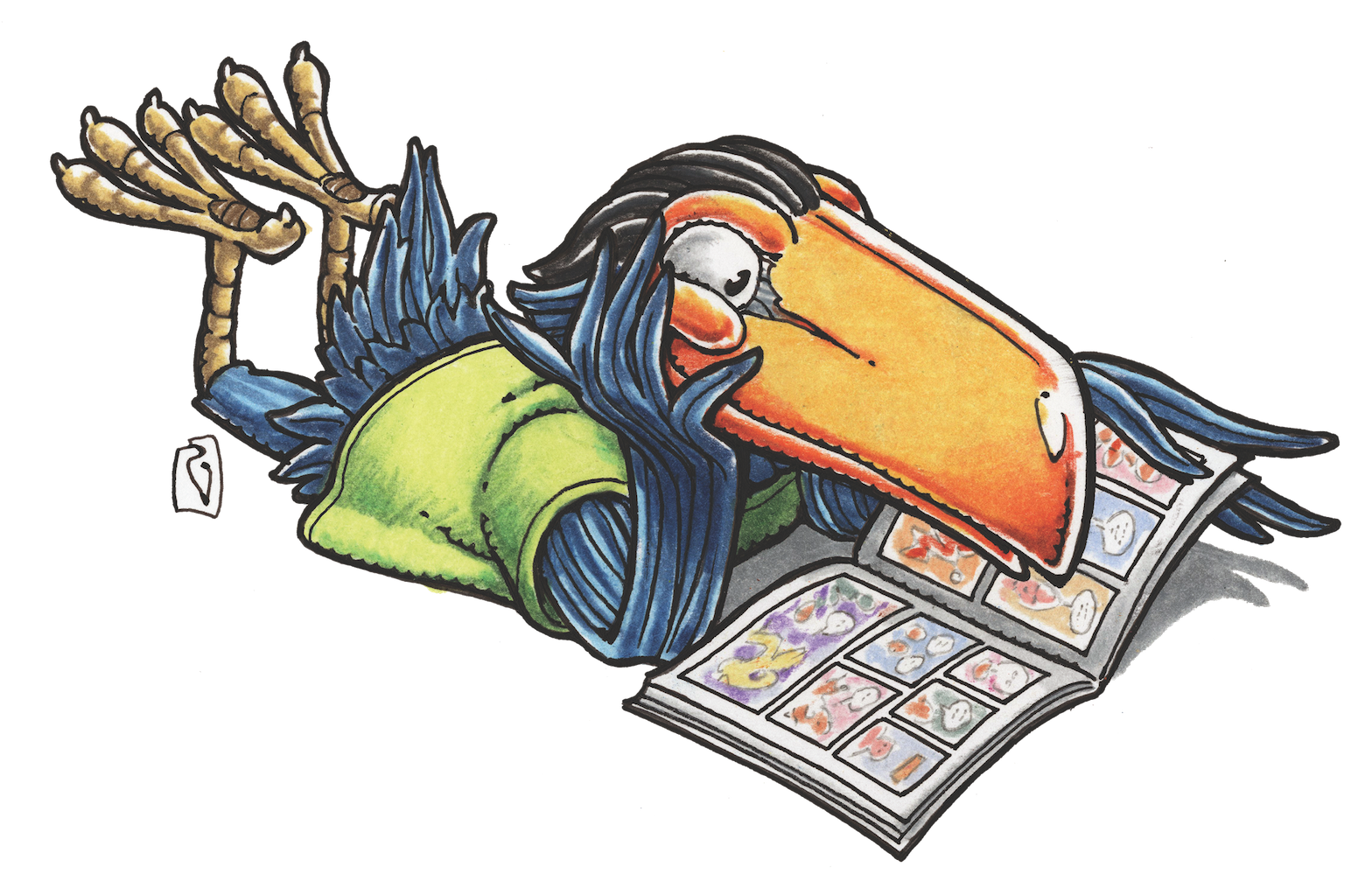MARC BERNARDIN’S DEVOURER OF WORDS
Devourer of Words 011: A Comic Writers Gift Guide


It’s not too late—there are still a few shopping days left before Christmas (and if Hannukah’s your bag, you can just tuck this list away for safe keeping) and if you’re a writer and don’t know what to ask for, or if you’re buying gifts for a writer and don’t know what to get, here are a few ideas.
None of these books are too expensive but all of them will hit the sweet spot.
The Thirty-Six Dramatic Situations by Georges Polti
They say there’s nothing new under the Sun and they’re right. Just like there are but so many musical notes, there are but so many stories. Of course, much like with those notes, the true magic comes when you put them together in a way no one ever has before. According to Polti (who is amplifying Aristotle’s statement that there are only three types of stories: man vs. man, man vs. nature, and man vs. self), there are three dozen variations that every tale you’ve ever heard, read or watched fall into. And they are all broken down to their most basic essence—like “daring enterprise” or “revolt.” This isn’t, in any way, a “How to Build a Story” guidebook, but it’ll help shake free some mental cobwebs and, possibly, lead you towards storytelling paths you might not naturally think of.
How to Draw Comics the Marvel Way by Stan Lee and John Buscema
Because if you’re going to write comics, you should know how they draw comics. You should know what tools are in an artist’s toolbox, the challenges they face in making a story readable and why the things you are asking for are either silly or inspired. Not that this book will actually make you an artist if you aren’t, but it can help you think visually in, perhaps, a way you hadn’t before. Think of it as a Rosetta Stone so you can speak the same language as your artist.
The Great Thoughts by George Seldes
There will come a time when you’re writing a character that needs to say something momentous, something that—in whatever world he or she lives in—would be remembered by all who hear it. This collection of essays, speeches, fragments of philosophies is full of what those things are in our world. Not that I’m suggesting, in any way, that you should lift words from, say, Churchill or MLK or Oppenheimer and put them in your characters’ mouths, but this’ll help you know what greatness looks like.
Writers on Comics Scriptwriting Vol. 1 and Vol. 2
These two volumes, published by Titan around 10 years ago might be out of print, but they’re worth tracking down, as they’ve got extensive interviews with comics scribes like Grant Morrison, Neil Gaiman, Brian K. Vaughan, Mark Waid, Brian Michael Bendis, Ed Brubaker, Greg Rucka, and Warren Ellis—all talking about their approach to putting words on the page. It’s the next best thing to cornering, well, every great writer of the past 20 years at a convention bar and asking them to reveal their secrets.
A good notebook and a good pen
Not “great,” mind you, just good. Because great becomes something you fetishize, something you cherish, something you’ll think is only worthy of great ideas. But a writer needs a tool, something to work with. And the best tools aren’t often pretty or glossy. They are functional. They get the job done. They encourage doing more. So find a good Moleskin or a Field Notes book—Warren Ellis is on record recommending them—and a good mechanical pencil or trackball pen … better, a whole pack of them.
Happy Holidays!
Marc Bernardin’s Devourer of Words appears the third Tuesday of every month here on Toucan!